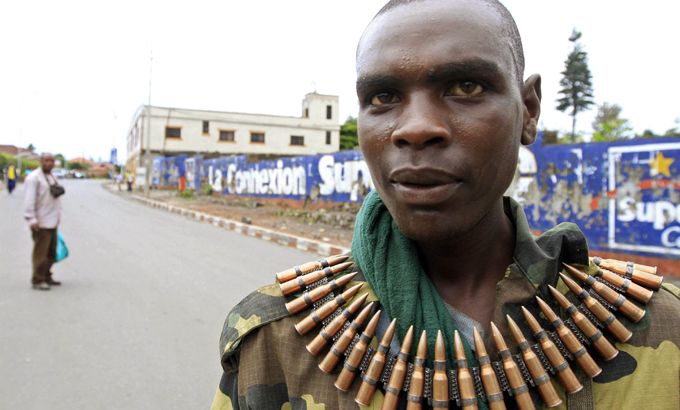
The US’ role in the DR Congo conflict
Is Washington’s patronage of Rwanda and Uganda ensuring further conflict and death in DR Congo?
Rebels from the M23 group in the eastern DR Congo (DRC) say they have begun withdrawing from territory they captured from government troops.
The group’s full name – the March 23 Movement – refers to the date peace accords were signed in 2009 between the country’s government and the National Congress for the Defence of the People (CNDP), a rebel group comprised mostly of ethnic Tutsis.
About 500,000 people have fled their homes during seven months of fighting between the M23 rebels and government troops.
|
“There is no question that the DRC has a role in that the DRC government is not anybody’s idea of a perfect, well- controlled government. But I think Paul Kagame’s denials fly in the face of the evidence. If you listen to him carefully, everybody in the world is wrong, the UN is wrong, its own allies – the UK and the United States.” – Nii Akuetteh, an African policy analyst |
The US has dispatched a state department official to the region but has been careful to spare its allies, Rwanda and Uganda, anything beyond symbolic sanction – even though a UN report, released last week, concluded that the rebels have been backed by both neighbouring countries.
The report also says that Rwanda helped recruit soldiers for Bosco Ntaganda, the M23 leader who is wanted by the International Criminal Court (ICC) for alleged war crimes. UN investigators interviewed rebel soldiers who said they were Rwandans and had been sent across the border to participate in the fighting.
It also says traders in Rwanda are funding the conflict, with the money from tin, tungsten and tantalum smuggled across the border from mines in the eastern DR Congo.
An interim version of the report was leaked to the media in the summer and the US was accused of blocking its release.
Paul Kagame, the president of Rwanda, has cultivated friendships with high-profile Western leaders, like Bill Clinton, the former US president, who once called him “one of the greatest leaders of our time”.
|
“The United States has a great deal of respect for Rwanda for several reasons …. Rwanda’s military and the American military are very close. And Rwanda cooperates with [the US for] intelligence gathering against extremist forces, jihadists in the region … and Rwanda always supports American foreign policy … plus you have the element of genocide guilt. Under the Clinton administration, the United States did nothing to stop the genocide so ever since then there’s been a reluctance, sort of a guilt feeling to not criticise Rwanda.“ – Herman Cohen, former US assistant secretary of state for African affairs |
Kagame was the leader of the Rwandan Patriotic Front, whose military victory effectively ended the Rwandan genocide in 1994. He became president in March 2000 and has been credited with helping Rwanda move past the ethnic strife of the 1990s, improving its economy and modernising Kigali, the capital, which is now reportedly one of the “safest cities in Africa”.
But he has also been accused of supporting conflict in DR Congo since the late 1990s. And there are accusations of human rights abuses inside Rwanda. Amnesty International has released reports detailing crackdowns on both journalists and political dissent.
US companies like Starbucks have invested heavily in the country.
Similarly Yoweri Museveni’s Ugandan government has received US support, even after a US state department report accused the country of gross human rights violations. It has also been accused of destabilising its resource-rich neighbour to the west, DR Congo.
So what is driving US policy towards the latest conflict in DR Congo?
To answer this, Inside Story Americas, with presenter Shihab Rattansi, is joined by guests: Kambale Musavuli, the national spokesman for Friends of the Congo; Nii Akuetteh, an African policy analyst and former executive director of Africa Action; and Herman Cohen who served as assistant secretary of state for African Affairs under George W Bush.
|
“I don’t understand the report …. They’ve been deserting with weapons, they’re coming from government forces and moving with weapons. I don’t have to give anybody weapons, it doesn’t make sense. Secondly, this so-called rebellion, in fact stands for nothing for us. If somebody just tried to think reasonably, what would Rwanda be looking for in this mess?” Paul Kagame, Rwanda’s president |